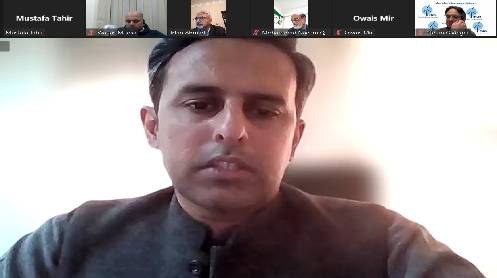WWEA says Pakistan well on track for maximum utilization of its massive clean power potential
Karachi The World Wind Energy Association (WWEA) has said that Pakistan is well on track in making progress to increase the production of clean electricity as the drive should continue to take advantage of an abundance of renewable power sources available in the country.

WWEA Secretary General, Stefan Gsanger, appreciated Pakistan’s drive to maximize the utilization of massive indigenously available wind and solar power sources as he spoke as the guest of honour at an online seminar held to celebrate the first-ever International Day of Clean Energy. The Energy Update in partnership with the WWEA, Pakistan Solar Association, Pakistan Alternative Energy Association and The Energy Forum Pakistan conducted the webinar.
Gsanger recalled that Pakistan had been one of the earliest supporters of the formation of the International Renewable Energy Agency as the global body for inter-governmental collaboration for fast transition from fossil fuels to clean power sources in different regions around the globe.
He assured the online participants of the webinar that the WWEA would continue to actively assist Pakistan’s efforts to acquire the latest technology for maximum power production from clean energy sources in the country for protection of the environment and availability of the cheapest electricity to the end-consumers.
He said that Pakistan should further build on its progress so far in the renewable power sector to enlarge its clean energy market to attract international investment.
He said that large foreign producers of clean energy equipment would be attracted to invest in Pakistan, with an increase in its market size, for setting up plants for indigenous production of wind and solar power technology for the maximum benefit of the Pakistani economy.
He told the audience that Pakistan could learn a lot from the example of China which very rapidly made progress in setting up wind power projects to maximize clean energy production in the country in a few years.
Gsanger appreciated that local investors and power sector companies had worked well to install a number of wind power plants in Pakistan to meet the targets set by the governments for clean energy production.
Syed Aqeel Hussain Jafri Director Policy of Private Power Infrastructure Board (PPIB) informed the audience about the active role being played by the PPIB to facilitate the private sector to set up new wind and solar power plants to achieve the target of 30 per cent clean power production in the country by 2030.
He hoped that with the national economy getting stable after a newly elected government took charge in the country after the February 8 general polls the private sector and international energy companies would further show a keen interest in investing in the renewable energy market of Pakistan.
Waqas Moosa, Executive Committee Member of Pakistan Solar Energy Association, informed the webinar participants about the serious hardships recently faced by the Pakistani clean energy companies due to import restrictions on solar panels and other renewable energy equipment due to depleting foreign exchange reserves of the country.
He said the EPC contractors involved in setting up solar power projects had faced undue delays in meeting the deadline to complete their projects due to these prolonged import-related restrictions.
Moosa suggested that Pakistan in the first phase should start indigenous production of cheaper small solar panels of less power generation capacity that are mostly used in the rural market.
He said that imposing heavy taxes on the import of solar panels and other renewable energy equipment to promote indigenous production of the same items was not a feasible idea in the long term.
Mehfooz A Qazi, Project Director of Sindh Solar Energy Project, informed the audience about the World Bank-funded drive in the province to set up solar parks, use rooftops of government buildings for installing solar panels, and give solar home systems to rural households.
He said the solar parks to be established under the Sindh Solar Energy Project would provide a massive opportunity for the private sector to invest in the clean energy sector.
Irfan Ahmed, a senior energy expert and Advisor Energy Update who also conducted the webinar, suggested that mini and microgrids should be built to ensure that solar energy resource was extensively used to energize faraway rural communities.
He said that solar energy was a distributed power resource that should be best utilized within a provincial area instead of transmitting its output to faraway areas in other provinces with chances of energy wastage due to transmission and distribution system losses.
He said that Pakistan should set up plants to locally produce solar panels and other related equipment so that new renewable energy plants could prove maximally beneficial for the national economy.
Naeem Qureshi of Energy Update said the webinar was organised with the aim of thoroughly evaluating the progress so far achieved by Pakistan to increase the share of clean electricity in the national energy mix.
He said that Energy Update would continue to hold more such seminars to gather at one place all the relevant stakeholders of the Pakistani power sector to find the way forward for resolving various issues of the local clean energy market.







